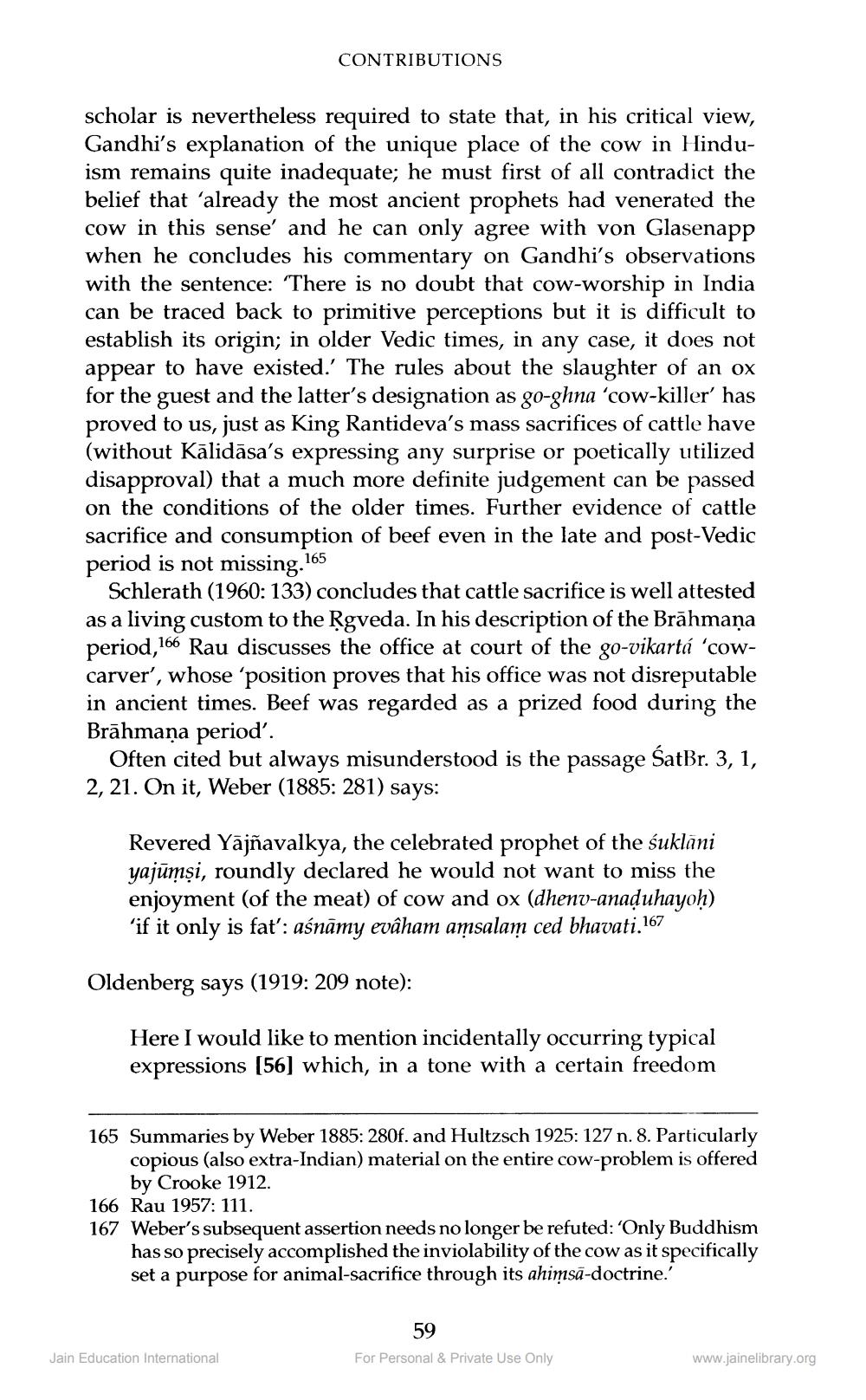________________
CONTRIBUTIONS
scholar is nevertheless required to state that, in his critical view, Gandhi's explanation of the unique place of the cow in Hinduism remains quite inadequate; he must first of all contradict the belief that already the most ancient prophets had venerated cow in this sense' and he can only agree with von Glasenapp when he concludes his commentary on Gandhi's observations with the sentence: There is no doubt that cow-worship in India can be traced back to primitive perceptions but it is difficult to establish its origin; in older Vedic times, in any case, it does not appear to have existed.' The rules about the slaughter of an ox for the guest and the latter's designation as go-ghna 'cow-killer' has proved to us, just as King Rantideva's mass sacrifices of cattle have (without Kālidāsa's expressing any surprise or poetically utilized disapproval) that a much more definite judgement can be passed on the conditions of the older times. Further evidence of cattle sacrifice and consumption of beef even in the late and post-Vedic period is not missing. 165
Schlerath (1960: 133) concludes that cattle sacrifice is well attested as a living custom to the Rgveda. In his description of the Brāhmaṇa period,166 Rau discusses the office at court of the go-vikartá 'cowcarver', whose 'position proves that his office was not disreputable in ancient times. Beef was regarded as a prized food during the Brāhmaṇa period'.
Often cited but always misunderstood is the passage SatBr. 3, 1, 2, 21. On it, Weber (1885: 281) says:
Revered Yājñavalkya, the celebrated prophet of the suklāni yajūmşi, roundly declared he would not want to miss the enjoyment (of the meat) of cow and ox (dhenv-anaduhayoḥ) 'if it only is fat': aśnāmy evâham amsalam ced bhavati.167
Oldenberg says (1919: 209 note):
Here I would like to mention incidentally occurring typical expressions [56] which, in a tone with a certain freedom
165 Summaries by Weber 1885: 280f. and Hultzsch 1925: 127 n. 8. Particularly
copious (also extra-Indian) material on the entire cow-problem is offered
by Crooke 1912. 166 Rau 1957: 111. 167 Weber's subsequent assertion needs no longer be refuted: 'Only Buddhism
has so precisely accomplished the inviolability of the cow as it specifically set a purpose for animal-sacrifice through its ahimsa-doctrine.'
59 For Personal & Private Use Only
Jain Education International
www.jainelibrary.org




